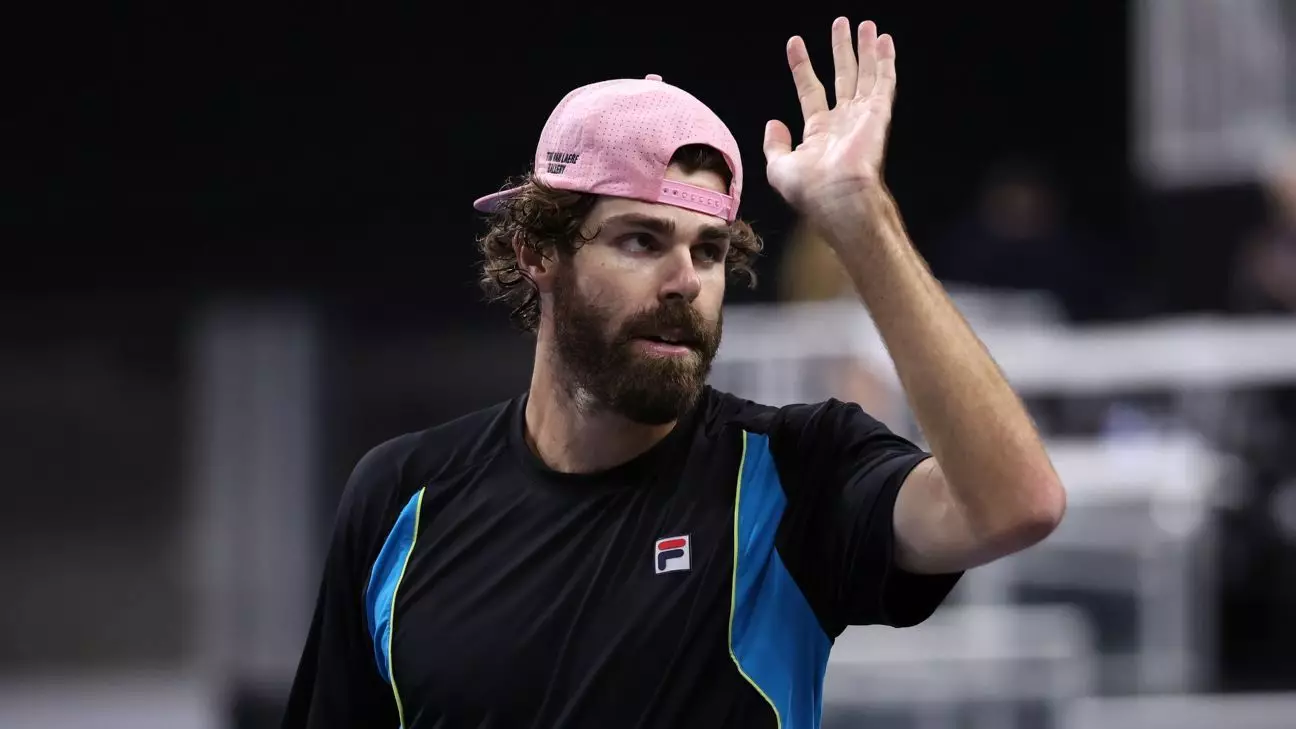The world of professional tennis often presents players and officials with high-stakes situations that can shape the outcome of matches and even careers. Recently, American tennis player Reilly Opelka found himself embroiled in a highly publicized controversy during the Dallas Open against Cameron Norrie. The incident began when Opelka halted his serve, confronting a spectator who he believed was deliberately trying to disrupt his concentration by coughing. What unfolded was not just a moment of frustration but a clash that brought to light the complexities of tennis officiating.
After receiving a code violation for his heated interaction with the fan, Opelka directed his ire at chair umpire Greg Allensworth, denouncing him as the “worst ref on the ATP.” This outburst stemmed from Opelka’s long-standing frustrations about officiating standards, especially when he feels they compromise the fairness of competition. The situation escalated when Allensworth not only issued a warning for Opelka’s emotional response but also penalized him with a point deduction for audible obscenities—an action that left Opelka feeling even more marginalized.
This conflict shines a spotlight on how players are often left to navigate not only their opponents but also the officiating hierarchy that governs the game. Opelka’s assertion that the umpire’s emotional response influenced the match adds another layer to an already tumultuous situation. He argues that had Allensworth acted with authority by addressing the disruptive fan, the ugly exchange could have been avoided entirely.
Opelka’s claim for punitive measures against Allensworth raises important questions about accountability in tennis officiating. The ATP rulebook stipulates specific protocols for handling player conduct, yet the consistency of enforcement remains unequally applied. Opelka’s dissatisfaction with the umpire’s failure to manage the situation reflects a broader sentiment among players who often feel at the mercy of official decision-making that lacks transparency or support.
Moreover, Opelka’s impending fines for the violations he incurred exacerbate feelings of injustice towards what he perceives as a poorly managed scenario. The disparity between the consequences faced by players and officials in these situations could lead to a crisis of trust in the integrity of the sport. This dynamic could potentially deter players from expressing themselves in matches where they feel threatened by external factors, ultimately suppressing their competitive spirit.
As Opelka gears up for his next match against Tommy Paul, the fallout from this incident serves as a crucial reminder of the challenges inherent in professional tennis. Although he triumphed on the court, the battle against perceived injustice remains in the background, with Opelka advocating for reform. The ATP’s response, or lack thereof, will influence not only his trajectory but also the broader discourse around officiating standards and athlete conduct in tennis.
The Dallas Open incident is a clarion call for introspection among officials, players, and governing bodies alike. To preserve the integrity of the sport, it is crucial that all parties recognize their roles in fostering an environment that prioritizes fairness, respect, and mutual accountability.


Leave a Reply